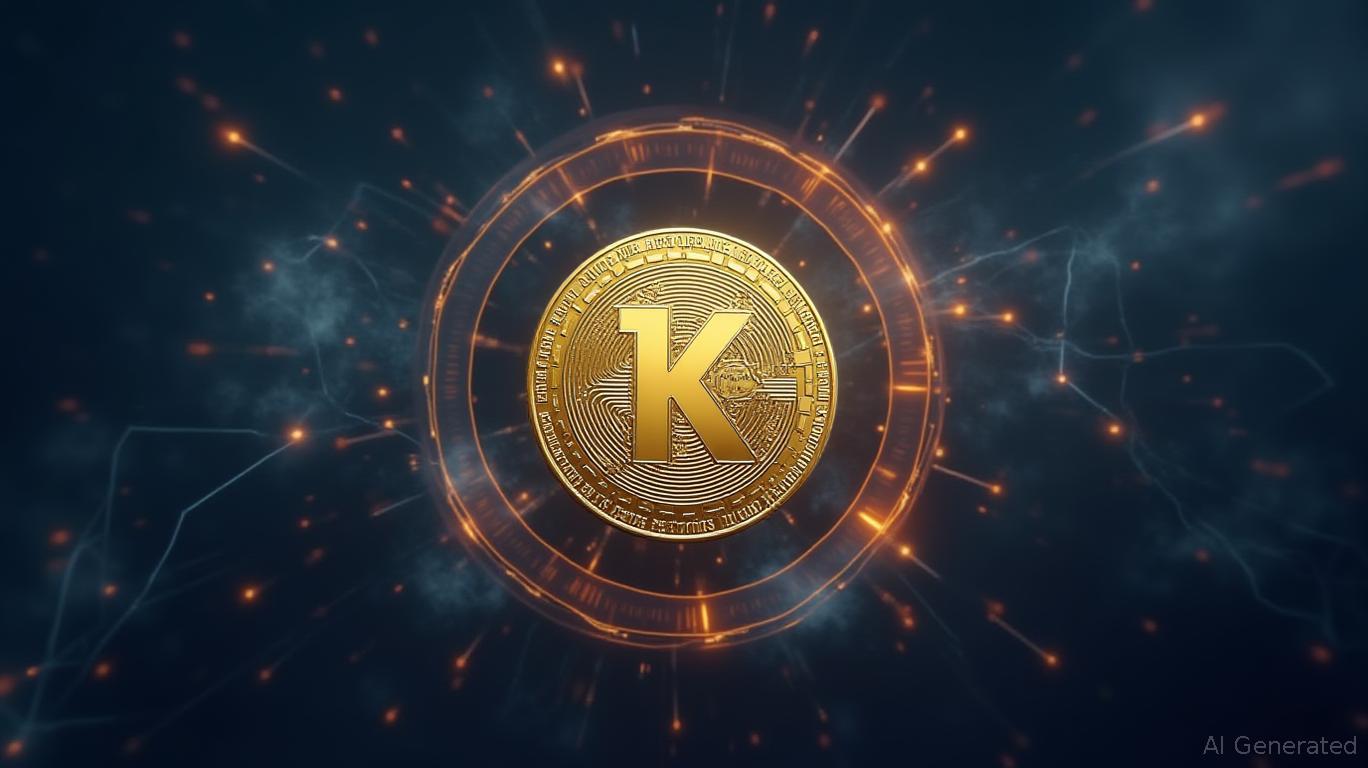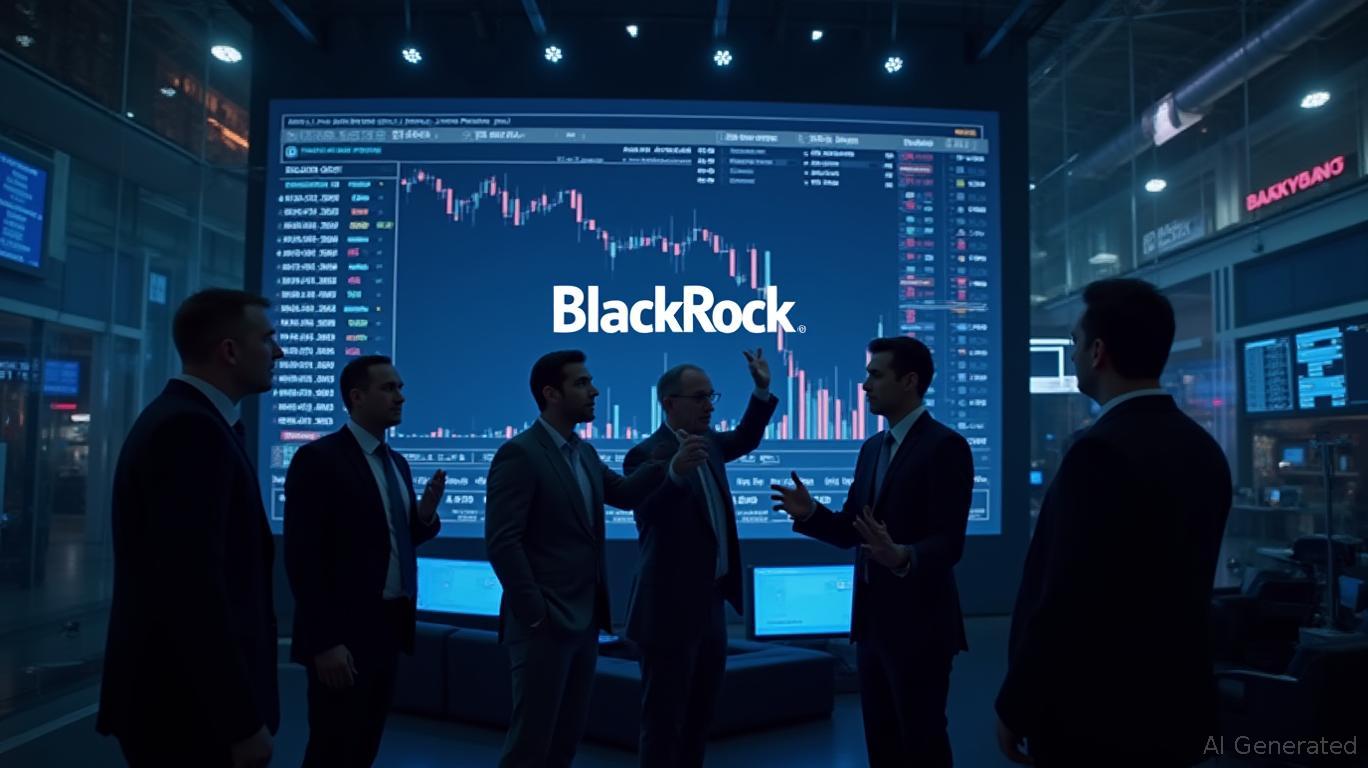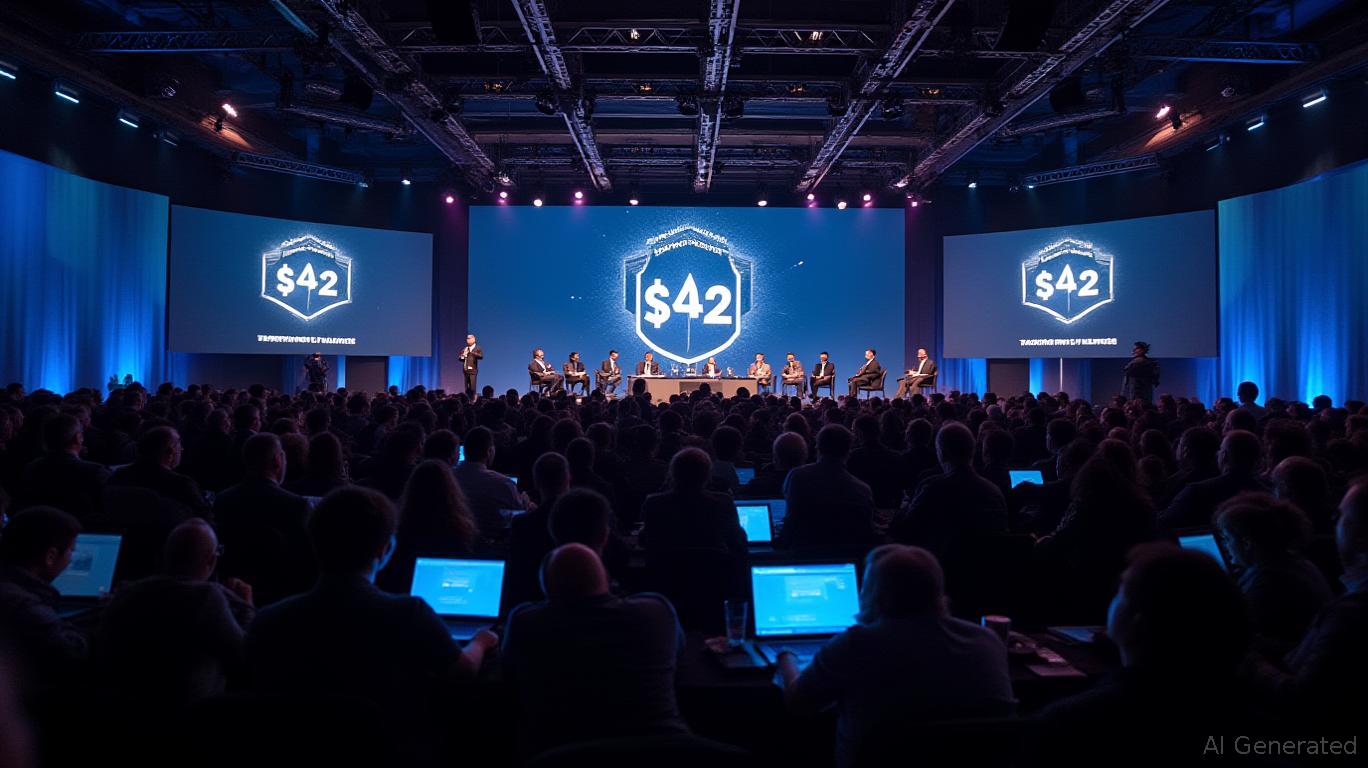ZKP Disrupts Crypto Speculation by Introducing a Trust Model Based on Verification
- ZKP blockchain project challenges crypto speculation by rewarding verifiable contributions over speculation, using cryptographic proof-based governance. - Its tokenomics allocates 48.5% of 1 billion tokens to community through phased unlocks, emphasizing long-term ecosystem development. - Whitelist participants shape trust mechanisms via data validation, contrasting traditional presales that prioritize capital or timing. - Integrating AI computation and privacy protocols, ZKP combines Proof of Intelligen
Zero Knowledge Proof (ZKP), a blockchain initiative that reimagines how value is determined within decentralized networks, is emphasizing participation based on verification. Utilizing cryptographic methods, the project rewards users for demonstrable contributions instead of speculative involvement, attracting attention for its merit-based governance and token allocation. As the whitelist phase approaches, early contributors are being called upon to help build a system where trust is established through evidence rather than hype, according to a
The ZKP platform features a scoring system that evaluates and assigns value to verified activities, such as data validation or computational work, as outlined in a

According to zkPass, the protocol powering ZKP, tokenomics information shows a total supply of 1 billion tokens, with 48.5% set aside for the community through a staged release. Of this, 12.5% will be available at the token generation event (TGE), 6% will unlock over the first quarter, and the remaining 30% will be distributed monthly over five years, supporting sustained ecosystem growth, as per a
The whitelist, accessible to early contributors, is designed as a merit-based gateway rather than a quick route to profit. Those who participate will help define how the verification process measures trust and authenticity, with incentives linked to their ability to confirm data and actions, as CoinEdition describes. By focusing on proof-driven participation, ZKP seeks to build a community where value is determined by actions, not speculation, CoinEdition adds.
ZKP’s technical architecture incorporates decentralized AI computation and privacy-focused protocols, allowing for secure and distributed handling of sensitive information. The system merges Proof of Intelligence (PoI) and Proof of Space (PoSp) to validate both computational and storage contributions, promoting scalability while maintaining transparency, according to a
Industry analysts point out that ZKP’s emphasis on verification matches the increasing need for blockchain solutions that support data ownership and regulatory standards. The project’s decentralized marketplace for AI models and datasets highlights its practical focus, enabling users to earn from their contributions while retaining control over their intellectual property, as reported by LiveBitcoinNews.
With the whitelist launch approaching, interest from the community has intensified, with conversations centering on ZKP’s dual promise: powering enterprise-level AI tasks and ensuring fair participation for node operators and data providers, as CoinEdition reports. The project’s commitment to verifiable intelligence and privacy has made it a strong candidate for significant growth in the blockchain sector, according to early analyses cited by CoinEdition.
The ZKP project is more than just a funding event—it’s an experiment in building a blockchain ecosystem where trust is rooted in evidence. By moving away from the speculative cycles common in crypto, the project aims to lay the groundwork for a value system based on transparency and verification, offering a preview of a future where growth is driven by trust, as concluded by CoinEdition.
Disclaimer: The content of this article solely reflects the author's opinion and does not represent the platform in any capacity. This article is not intended to serve as a reference for making investment decisions.
You may also like
Regulatory Concerns Intensify with the Introduction of South Korea's KRW1 Stablecoin into Arc's International Network
- Circle's Arc blockchain, designed as an "economic operating system," offers sub-second finality and USDC-based fees to streamline global finance. - South Korea's BDACS plans to deploy KRW1, a won-pegged stablecoin on Arc's testnet, bridging Korean markets to global stablecoin networks. - Arc's testnet has attracted 100+ institutions including BlackRock and Visa, aiming to redefine cross-border payments and asset tokenization. - Regulatory debates persist as South Korea's Bank of Korea proposes restrictin

Bitcoin News Update: BlackRock's ETF Supremacy Raises Concerns for Altcoin Futures
- BlackRock's iShares Bitcoin Trust ETF dominated 2025 with $28.1B inflows, overshadowing $1.27B outflows from other spot Bitcoin ETFs. - Altcoin ETFs face uncertainty without BlackRock's support, despite JPMorgan/Bitget's $3–8B inflow projections for Solana and XRP. - DeFi innovation advanced via Avalanche's BTC.b bridging, while Blazpay and BullZilla presales attracted $1M+ in speculative capital. - Bitcoin traded near $110,000 amid $488M ETF outflows, with Saylor forecasting $150,000 by year-end driven

Romania Prohibits Unregulated Prediction Markets, Classifying Them as Gambling
- Romania's ONJN banned unlicensed prediction market Polymarket, classifying its user-driven bets on real-world events as gambling requiring a license. - Regulators warned that treating counterparty betting as "trading" creates legal risks for player protection, AML compliance, and state revenue collection. - The crackdown follows $600M+ in wagers on Romanian elections and joins bans in France, Belgium, and the U.S., where Polymarket faces EU licensing hurdles. - Despite securing a CFTC-licensed exchange a

Monero Faces a $342 Test: The Assurance of Privacy Against Widespread Doubt
- Monero (XMR) trades near $342, with traders monitoring key support/resistance levels amid mixed sentiment. - Analysts highlight $342 as a critical threshold; breakouts could drive bullish momentum, while dips below $325 risk corrections. - Privacy coin faces challenges from regulatory uncertainty and cautious institutional adoption despite growing DeFi use cases. - Broader crypto market shows mixed trends, with NFT sales declining and tech stocks like Nvidia surging.
